Trump
Latest

Tech workers unite against a potential US Muslim registry
Employees from large organizations across the technology industry have pledged to never help build a government database targeting individuals by race, religion or national origin, in response to extreme immigration proposals from US President-elect Donald Trump. The signatories come from companies including Google, IBM, Twitter, Mozilla and NVIDIA, though they don't represent the organizations themselves.

Scientists copy climate change data in fear of a Trump crackdown
Donald Trump's incoming presidency won't be kind to climate change science, and that's making both scientists and government divisions nervous -- to the point where they're taking unusually drastic actions. Researchers at multiple North American institutions, including the Universities of Pennsylvania and Toronto (as part of the Internet Archive's Trump response), are hoping to save as much public environmental data as possible in case the Trump administration orders its removal. There's also an independent Climate Mirror project that aims to copy public data before Trump takes office in January.
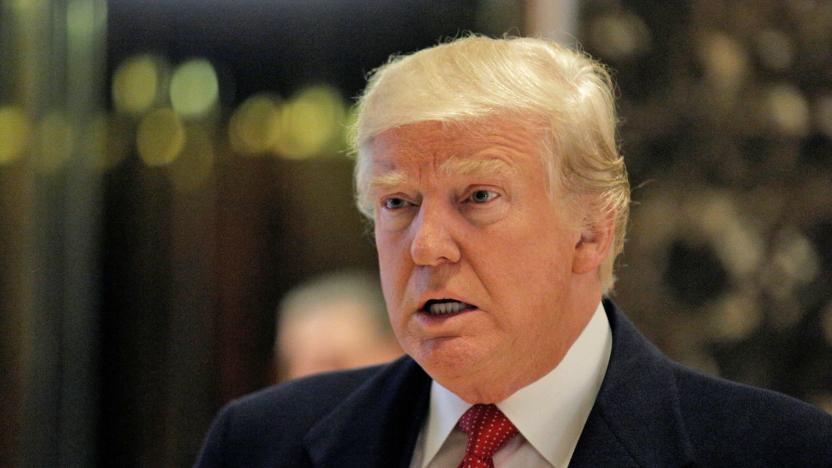
Trump could convert government news agencies to propaganda machines
One more thing President-elect Trump will inherit when he takes office next month: a large, state-run media operation with little or no impartial oversight. As the Washington Post's editorial board wrote this weekend, the United States' official external news sources Voice of America, Radio Free Europe, Radio Liberty and others are about to lose the buffer that keeps the content they project to the world fair and objective.
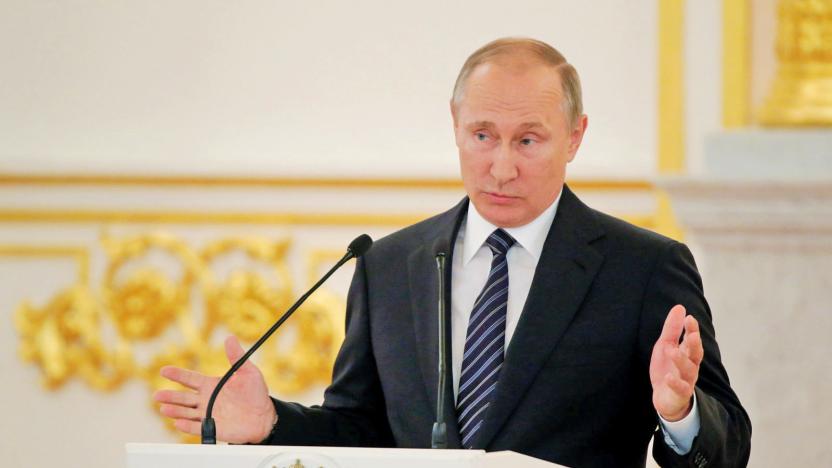
Obama opens investigation into cyber attacks on US election
President Barack Obama has ordered an investigation into cyber attacks and foreign influence during the 2016 US presidential election, Reuters reports. He's asking intelligence agencies to provide a report on the issue before he leaves office on January 20th, and the review will be shared with lawmakers and other stakeholders, homeland security adviser Lisa Monaco reportedly said. Monaco added that cyber attacks may have crossed a "new threshold" this year.

NYC will stop collecting info Trump could use for deportations
The NYC mayor's office has announced that it will no longer store personal records for immigrants who apply for the city's free IDNYC identification card. While the card allows users to secure accounts for utilities, banking and more, officials fear President-elect Trump could use the database for his proposed deportation plans. Mayor Bill de Blasio said in the weeks following the election that he would keep cardholders' personal records from the federal government and other authorities.

ICYMI: Using brain power to move a game character
try{document.getElementById("aol-cms-player-1").style.display="none";}catch(e){}Today on In Case You Missed It: University of Washington researchers were able to use a magnetic coil at the base of test subjects skulls to watch them play a simplified 2D computer game with just the power of their thoughts. Meanwhile UC Berkeley researchers built a small robot called the SALTO that weighs only 100 grams but is based on the jumping abilities of kangaroos. Google just created a bit of fun on its Twitter account, where users can tweet at the search engine with emojis, then get a response from the account show the nearest location for whatever taco or burger you need asap. 'Cause typing into a search bar is passé now, I guess. For your reminder that: Scientists, they're just like us!-- be sure to check out CERN's silly Mannequin Challenge. As always, please share any interesting tech or science videos you find by using the #ICYMI hashtag on Twitter for @mskerryd.
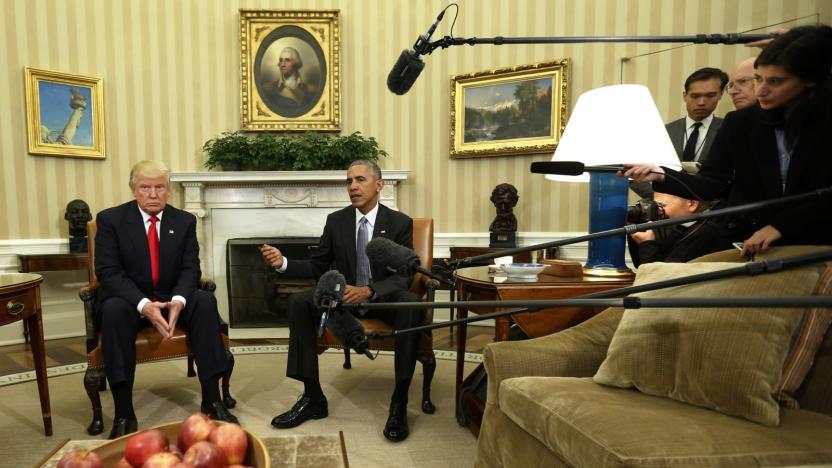
Twitter in 2016 was a pretty depressing place to be
Let's not be mealymouthed: 2016 sucked. As a stark reminder, Twitter has released its "Top 10 Global Conversations" for the year, a change from last year's #YearOnTwitter format. This time, it lumped events into categories like #RIP, #Brexit, #Trump and #Oscars, perhaps as a way to give equal time to the rare good news stories. Otherwise, the list would be pretty much death, politics and Trump.
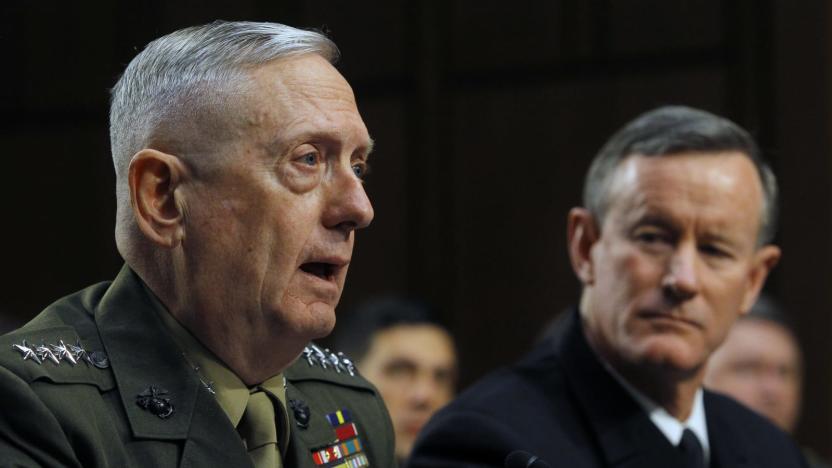
Trump defense secretary pick serves on Theranos' board
President-elect Trump's rapidly growing circle of advisers and cabinet members continues to raise eyebrows among the tech-savvy. The incoming leader has picked retired General James Mattis as his Secretary of Defense, and the Marine has been a devoted champion of Theranos -- you know, the blood testing firm facing both a criminal investigation and a slew of lawsuits over its technology claims. He's on the company's board of directors, but email obtained by the Washington Post shows that Mattis bent over backwards to support Theranos in the years when he was leading US Central Command.

EPA could lock in emissions rules before Trump takes office
The EPA and the Obama administration set lofty goals for lowering vehicle greenhouse gas emissions back in 2012. Under those terms, US automakers would have until 2025 to double fuel efficiency to 54.5 MPG which would lead to well over $1 trillion is fuel savings over the life of new cars. Of course, the plan would cost manufacturers $200 billion to meet that goal before the end of the 13-year term.

The Internet Archive doesn't feel safe in Trump's America
The Internet Archive collects the history of the internet, one webpage at a time, in order to power services like the Wayback Machine, the free e-book site Open Library and the Political TV Ad Archive. It's a non-profit based in the United States, but today, staffers announced plans to establish a copy of the Internet Archive's digital collections in Canada. The decision is fueled by concerns over President-elect Donald Trump's statements about the First Amendment and net neutrality.
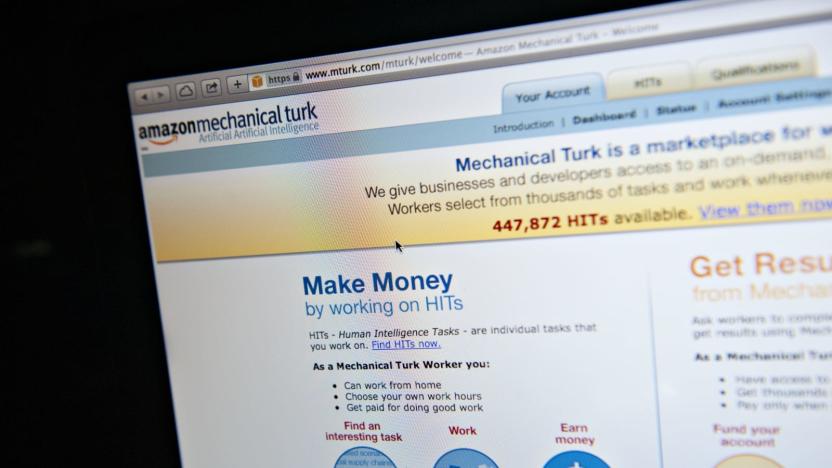
Fake news sites are using Amazon to hire their writers
It appears that right wing websites that traffic in "alt-right" fake news are using Amazon's Mechanical Turk system to recruit writers to produce content for them. The Mechanical Turk platform is an "odd-job board" where companies can hire random folks from the internet to perform a variety of menial online tasks, like filling out surveys or transcribing audio. In this case, white supremacist outlet The Goldwater wants people to produce "news" articles for $5 a pop.

Trump subs in a YouTube address for a press conference
President-elect Donald Trump has made his first address regarding the state of his transition to President of the United States, via a YouTube video. While he presumably reads directly from a teleprompter, Trump lays out his plans for cyber security, among others: "I will ask the Department of Defense as well as the chairman of the Joint Chiefs of Staff to develop a comprehensive plan to protect America's vital infrastructure from cyberattacks as well as all other form of attacks." No other information about the plan was given beyond that.

Clickbait, fake news and the power of feeling
Fake news has dominated post-election headlines, and important questions have been asked: Would Hillary have won had almost a million people not read that Pope Francis had endorsed Trump? (Probably not). Did Facebook take enough action to prevent fake news proliferating on its network? (Definitely not). But few have asked why these articles were so popular in the first place. Why were so many people duped into clicking these stories? Earlier this month, BuzzFeed News' Craig Silverman analyzed engagement (likes, comments, shares, etc.) across Facebook and identified the most popular real and fake articles across three distinct periods: February to April, May to July and August to Election Day. With this analysis, Silverman was able to show that the 20 most popular fake posts were "engaged with" (Facebook's term for likes, shares and so on) 8.71 million times in the lead up to the election, compared to just 2.97 million times in February to April. Mainstream news showed the opposite pattern: Starting at 12.4 million, and falling to 7.37 million in the final period -- 1.34 million less than the fake news. The overall number of engagements is fairly steady, too, suggesting that, at least to some extent, Facebook users were sharing fake news instead of real stories.
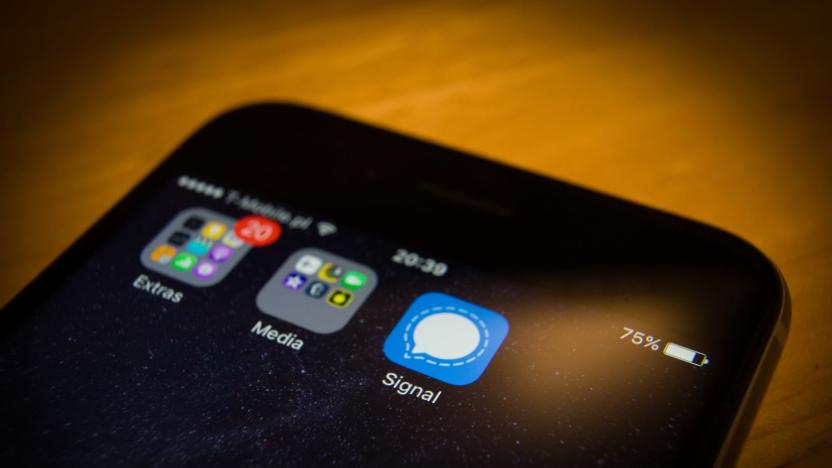
Signal makes it easier to verify the privacy of your chats
One of Signal's privacy advantages is that it not only encrypts your conversations, but gives you simple proof that those discussions are truly secret -- you just have to compare a set of digits or scan a QR code. Those safety numbers aren't always easy to use, however, and that has led to people inadvertently putting themselves at risk -- especially when they switch devices. Developer Open Whisper Systems is fixing that by altering how safety numbers work in terms of both simplicity and practicality.
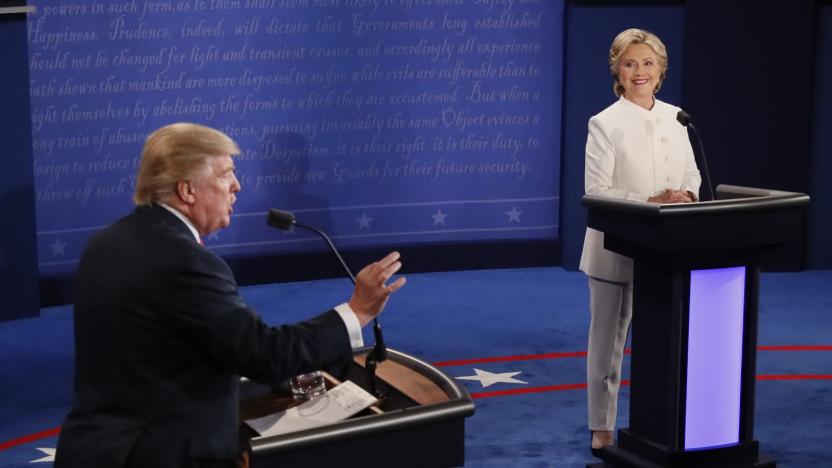
Twitter bots were rampant during the US election
If you believe one study, it's not just fake news that polluted the internet during the US election... it's bogus accounts, too. Researchers at the international Project on Computational Propaganda report that the use of politically minded Twitter bots reached an "all-time high" during the 2016 presidential campaign. Out of 18.9 million studied tweets using political hashtags, 17.9 percent of them came from "highly automated" accounts that post 50 or more tweets per day. That ratio only grew higher during the debates, peaking at over 27 percent during the final Clinton/Trump showdown -- and it conveniently tanked after the election was over.

Recommended Reading: Fake news writer takes blame for Trump's win
Facebook Fake-news Writer: 'I Think Donald Trump Is in the White House Because of Me' Caitlin Dewey, The Washington Post Facebook's struggle with fake news has been widely reported and the issue is still a hot topic in the days following the US presidential election. The Washington Post caught up with Paul Horner, a man who has made a living off of news hoaxes over the last few years, some of which got picked up by the media and the Trump campaign as legit stories. "His followers don't fact-check anything -- they'll post everything, believe anything," Horner said. "His campaign manager posted my story about a protester getting paid $3,500 as fact. Like, I made that up. I posted a fake ad on Craigslist."
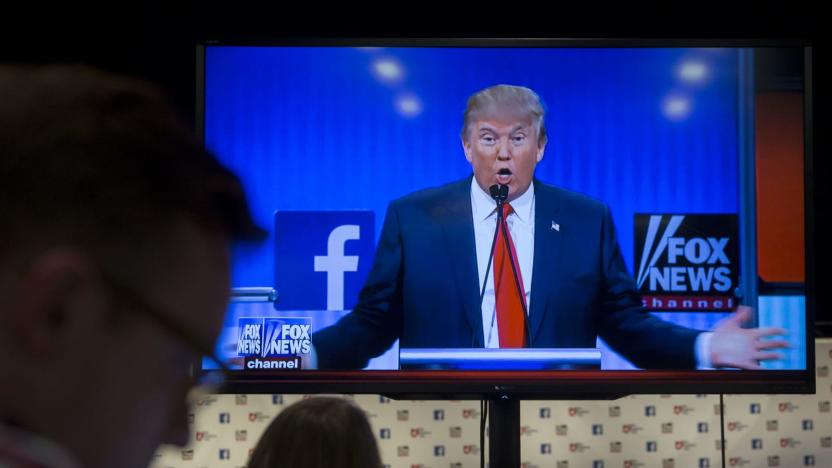
Trump's Facebook focus helped him win the election
Despite Facebook's arguments to the contrary, its social network helped Donald Trump win the US election... if not for the reasons you'd suspect. Wired has learned that the Trump campaign focused very heavily on its Facebook strategy, eclipsing a Clinton campaign that (while definitely digital-savvy) still devoted a lot of its attention to TV. Most of Trump's $250 million in fundraising came from supporters on Facebook, and it was extremely aggressive in running and refining ads. Trump's digital team ran between 40,000 to 50,000 variants of its promos per day, endlessly figuring out which strategies worked best. They knew if subtitles would help, or if a video was more effective than a still image.

Secret's anonymous sharing is coming back as a response to Trump
Secret's air-your-dirty-laundry service collapsed about as quickly as it rose to prominence, but it looks like it's poised for a comeback thanks to the new political climate. Co-creator David Byttow has vowed that "Secret V2" is on the way as an explicit answer to Donald Trump winning the US election -- "it's too important not to exist," he says. In a chat with our friends at TechCrunch, he paints it as a way to both encourage authenticity and bridge political divides. The US can't "heal and work together" if people aren't comfortable being themselves and aren't self-aware, Byttow argues. This wouldn't be a simple matter of turning the servers back on and re-releasing the apps, though.

Recommended Reading: Trump's own polling models prove accurate
Trump's Big Data Mind Explains How He Knew Trump Could Win Izzie Lapowsky, Wired While it could take some time to uncover the finer points of why the polls were so far off in the 2016 presidential election, the head of President-elect Donald Trump's data team knew the candidate had a good chance of pulling out a stunning upset. Wired talked with Cambridge Analytica's Matt Oczkowski to get some details on their internal polling models which correctly predicted how most of the states would vote.
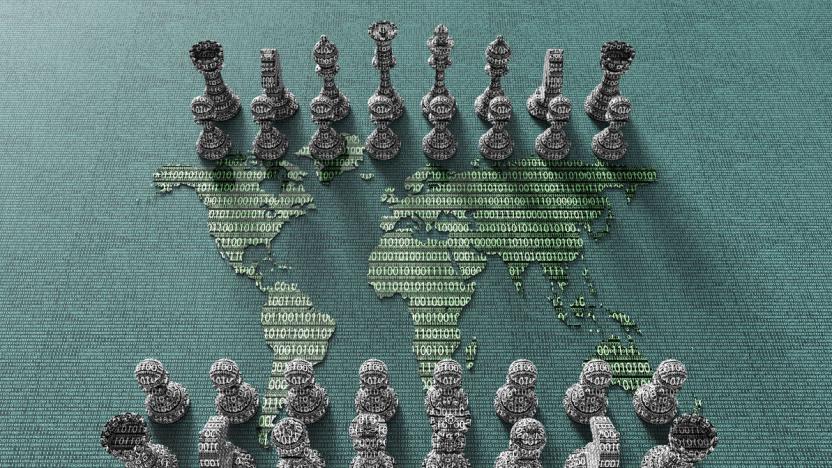
The consequences of the Trump presidency on cybersecurity
Hacking and cybersecurity played a huge role in the presidential election. So much so that Donald Trump, America's new president-elect, was helped greatly by the acts of criminal hackers in his journey to the White House, and is now an outspoken WikiLeaks fan.








